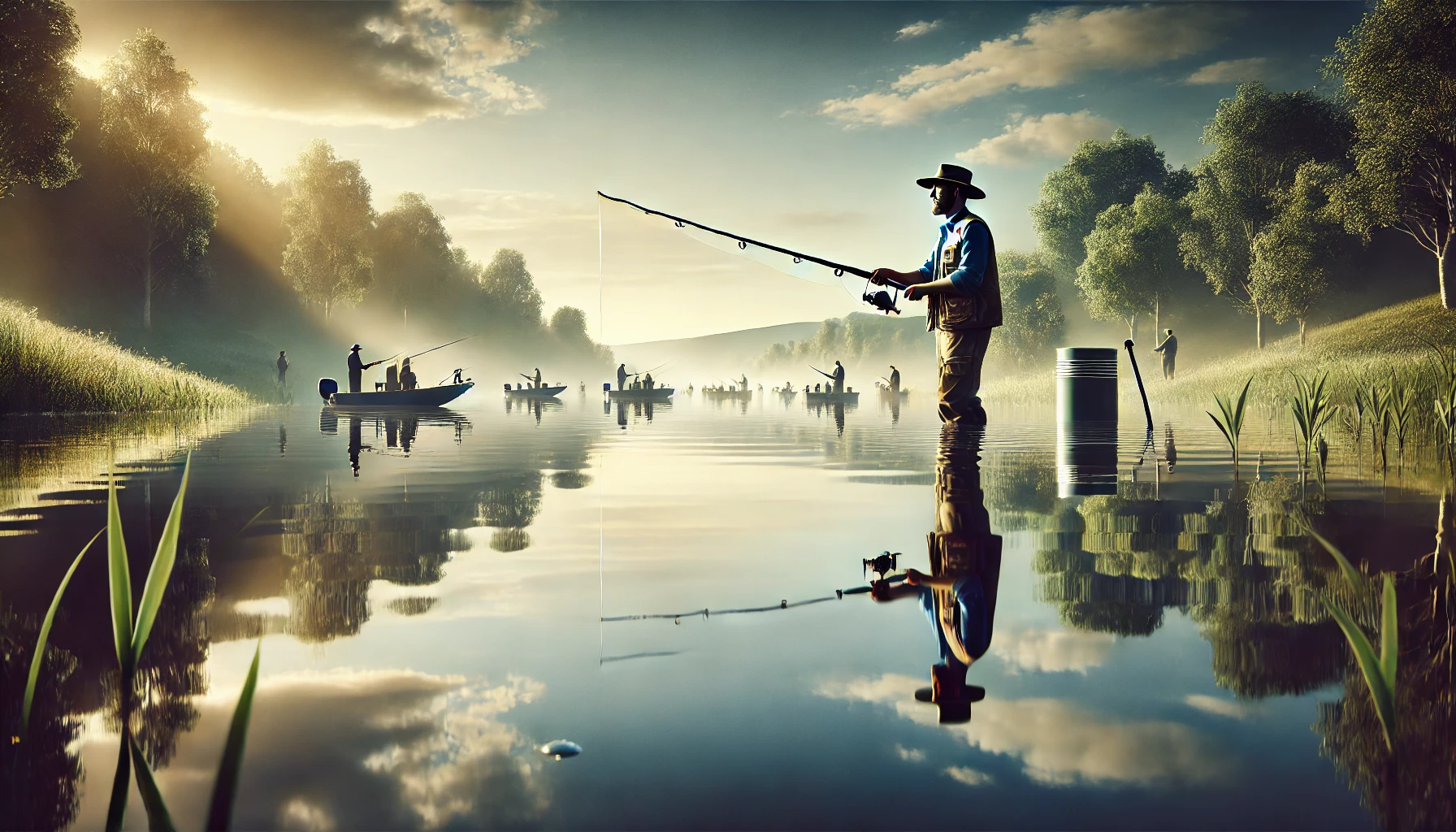Is Fishing a Sport? A Detailed Exploration of Fishing in Modern Culture and Competition
Introduction: Is Fishing a Sport?
Fishing is an ancient activity that has evolved from a basic means of survival to a popular recreational activity enjoyed by millions of people worldwide. Yet, one question often arises: Is fishing a sport? This question has sparked debates among recreational anglers, professional athletes, and the general public alike.
Fishing, by definition, involves catching fish, either for food, sport, or recreation. It can take various forms—ranging from leisurely shore fishing to highly competitive tournaments. But when does it cross the line from just being an enjoyable hobby to a competitive sport? This article will explore the nuances of fishing as a sport, dissecting its history, rules, and the physical and mental skills it requires. We will examine how fishing compares to other recognized sports and why many argue that it deserves to be considered a true sport.
The Origins of Fishing: Survival to Leisure
A Brief History of Fishing
Fishing dates back to prehistoric times, with evidence of early humans using fishing tools made from bone and wood. The first signs of fishing as a survival technique were found in ancient Egypt, where fishing was an important method of obtaining food. As civilizations evolved, fishing became a leisure activity for the wealthy, and various forms of recreational fishing began to emerge.
The ancient Greeks and Romans were among the first to document recreational fishing. They enjoyed fishing not only for food but also as a social activity. The 16th century saw the emergence of more structured approaches to fishing, with the creation of rods, reels, and more sophisticated bait. These advancements laid the foundation for modern sport fishing.
Fishing in the Modern Age
Today, fishing is practiced worldwide in both freshwater and saltwater environments. It can be done for recreational purposes, for competition, or as a professional activity. Modern fishing techniques range from fly fishing in mountain streams to deep-sea fishing for large game fish. With the introduction of professional fishing tournaments and leagues, fishing has gradually become more recognized as a sport in its own right.
However, the question remains: Is fishing truly a sport? To answer that, we must explore the characteristics that define a sport.
What Defines a Sport?
Physical and Mental Skill Requirements
At the heart of the debate is whether fishing requires the same physical and mental exertion as other recognized sports. While sports like soccer, tennis, or basketball are highly physical, involving continuous movement and intense competition, fishing often involves more patience and skill rather than sheer physical endurance.
Despite this, fishing requires a great deal of precision, timing, and technical skill. Successful anglers must possess a deep understanding of their environment, knowledge of different fish species, and mastery over their tools and techniques. Whether it’s the perfect cast in fly fishing or the ability to reel in a marlin during a saltwater tournament, fishing demands concentration, strategy, and a deep level of commitment.
The Competitive Aspect of Fishing
Many consider the competitive aspect of fishing to be one of the defining characteristics that elevates it to a sport. Tournaments like the Bassmaster Classic and FLW Tour attract thousands of anglers who compete for both fame and cash prizes. These tournaments feature highly skilled anglers who engage in precision fishing, often requiring them to use specialized equipment and techniques.
Professional anglers spend years honing their skills, much like athletes in other sports. The physicality involved in fishing, such as the endurance required for long hours on the water, as well as the mental fortitude to make quick, strategic decisions, contribute to fishing’s classification as a sport.
Different Types of Fishing: Recreational vs. Competitive
Recreational Fishing: A Hobby or Sport?
Recreational fishing is arguably the most common form of fishing. It is practiced by millions of people worldwide and can range from a casual day at the lake to a more dedicated weekend pursuit. Many recreational anglers fish simply for relaxation, to enjoy the outdoors, or to catch fish for food.
In this context, fishing can often be seen as a leisurely activity, more akin to a hobby. However, some recreational anglers approach fishing with the same intensity and focus as a professional athlete, practicing techniques and competing with friends and family.
Competitive Fishing: A True Sport?
Competitive fishing is where fishing takes on a more structured, sports-like nature. Professional tournaments are held around the world in various formats, such as bass fishing, fly fishing, and even ice fishing. Anglers in these tournaments are often required to meet strict rules and regulations, including limits on fish size, number, and species, as well as adherence to environmental standards.
Competitions like the Bassmaster Classic or World Fly Fishing Championships require anglers to fish within a set time limit and demonstrate their skill in catching as many fish as possible. The level of competition is fierce, and the anglers competing in these events train just like athletes in other sports.
The Skills Involved in Fishing
Technical Expertise
Fishing requires a high degree of technical skill, and successful anglers are experts in their craft. For example, fly fishing involves an intricate technique in which the angler casts a lightweight artificial fly to catch fish. This requires skill in casting, timing, and understanding the behavior of the fish.
In bass fishing, anglers must know how to select the right bait, understand the water conditions, and read the movements of the fish. These techniques are honed over years of practice, and mastering them can take a lifetime.
Patience and Strategy
While many sports require speed, agility, and physical exertion, fishing emphasizes patience and strategy. Anglers must often wait for long periods to catch a fish, making it more about timing and perseverance than quick reflexes. Successful fishing requires planning and mental focus, much like chess or other strategy games.
Physical Endurance in Fishing
Fishing can also be physically demanding. Professional anglers in competitions spend hours or even days on the water, dealing with extreme weather conditions, long casting sessions, and the physical exertion of reeling in large fish. Deep-sea fishing for large species like marlin or tuna can require significant strength and stamina, as anglers battle with fish that can weigh several hundred pounds.
Fishing Tournaments: A Growing Industry
The Rise of Professional Fishing Tournaments
Fishing tournaments have grown exponentially in popularity over the last few decades. Events like the Bassmaster Elite Series and FLW Fishing Tour attract thousands of professional anglers, sponsors, and spectators. These tournaments have elevated fishing to a professional level, with anglers often treating the sport like a full-time career. Many professional anglers make a living through sponsorships, endorsements, and tournament winnings.
The tournaments follow strict rules, including specific fishing areas, allowed equipment, and even the types of fish that can be caught. Some tournaments, like the IGFA World Record Game Fish Tournament, are centered around breaking world records, which adds to the competitive nature of fishing.
Prize Money and Sponsorships
The competitive fishing industry has become a multi-million dollar industry, with some tournaments offering prize money in the hundreds of thousands of dollars. High-profile sponsors like Yamaha, Toyota, and Bass Pro Shops support professional fishing, contributing to the financial viability of the sport. Just like in other professional sports, anglers rely on sponsorships and brand partnerships to support their careers.
The Social Aspect of Fishing: Community and Camaraderie
Fishing as a Social Activity
Fishing has always had a strong social component. From small weekend outings with friends and family to large-scale tournaments, fishing brings people together. The camaraderie and shared experience of fishing have made it a beloved activity in many cultures. Whether fishing on a boat or sitting together on the shore, people bond over their shared love of the sport.
The Role of Fishing Clubs and Organizations
Fishing clubs and organizations are vital parts of the fishing community. These groups organize tournaments, offer training and educational resources, and foster connections between anglers. For example, the International Game Fish Association (IGFA) is one of the most prestigious organizations for recreational and professional anglers, and it plays a key role in regulating competitive fishing and maintaining fishing records.
The Debate: Is Fishing Truly a Sport?
Arguments for Fishing as a Sport
- Skill and Strategy: Fishing requires technical skill, patience, and strategy, which are all common components of recognized sports.
- Competition: Fishing has a well-established competitive element, with professional tournaments, regulations, and prize money, much like any other sport.
- Physical Endurance: Certain types of fishing, such as deep-sea fishing or bass fishing, require physical strength, stamina, and endurance.
- Global Recognition: Fishing is widely recognized as a sport in many parts of the world, with millions of people engaging in it as a form of recreation or competition.
Arguments Against Fishing as a Sport
- Lack of Continuous Physical Activity: Unlike traditional sports that involve constant movement and physical exertion, fishing often requires long periods of waiting or sitting still.
- Focus on Recreation: Many see fishing as more of a leisure activity or hobby than a competitive sport, especially when it’s practiced for relaxation or enjoyment rather than competition.
- Mental over Physical: While physical endurance can be required in some types of fishing, it is largely a mental game of patience and strategy, which contrasts with more physical sports like soccer or basketball.
Conclusion: Is Fishing a Sport?
The debate over whether fishing is a sport is nuanced. On one hand, it shares many characteristics with recognized sports, such as skill, competition, and physical demands. On the other hand, it also differs significantly in its nature, often being more about patience and mental strategy than physical activity.
Ultimately, the classification of fishing as a sport is subjective. For those who participate in competitive fishing, who devote years to mastering the techniques, and who battle against both the elements and their competitors, fishing is undoubtedly a sport. Whether it’s recreational or professional, fishing continues to thrive as a cultural activity enjoyed by millions, making it a defining part of sporting history.








Post Comment